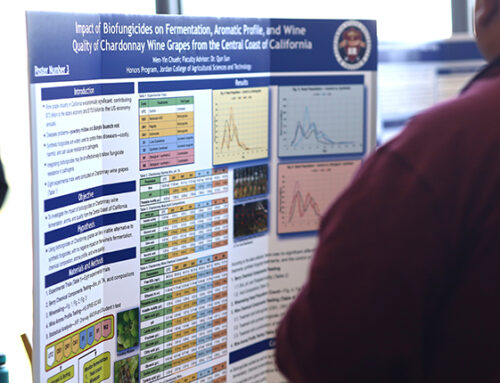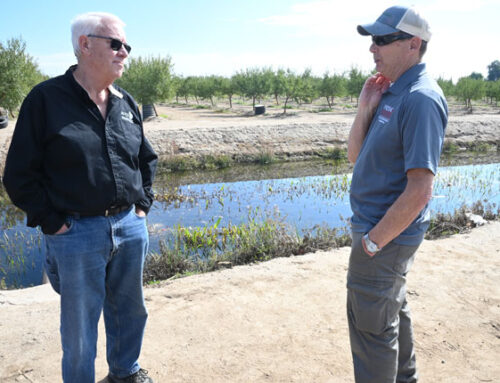For the 28th consecutive month, the San Joaquin Valley Business Conditions Index rose above the 50.0 growth neutral threshold. After declining last month, the overall March index jumped to 57.2 from 54.8 in February. An index greater than 50.0 indicates an expansionary economy over the next three to six months.
Dr. Ernie Goss, research faculty with the Craig School of Business at Fresno State, says the San Joaquin Valley’s index points to growth greater than the national average for months to come.
The index, produced by the Craig School, is a leading economic indicator from a survey of individuals making company purchasing decisions in the counties of Fresno, Madera, Kings and Tulare. The index uses the same methodology as that of the national Institute for Supply Management.
This month survey participants were asked about the importance of international markets to their business. Nearly 62 percent of businesses reported that in terms of selling products and services, access to international markets is important to their businesses. More than two-thirds of businesses reported that in terms of buying supplies of inputs and raw materials, access to international markets is important to their businesses.
Other survey findings:
- Employment: The region’s hiring gauge has been above the 50.0 threshold every month since October 2013. In March, the index rose to 57.8 from 54.1 in February. “Job growth in the San Joaquin Valley continues to expand at a solid pace and well above U.S. job growth,” Goss said. “Regional job additions were especially healthy for non-durable manufacturers, including food processors, wholesale trade firms and warehousing companies.”
- Wholesale prices: The prices-paid index, which tracks the cost of purchased raw materials and supplies, advanced to 48.9 from 42.9 in February.
- Business confidence: Looking ahead six months, economic optimism, captured by the business confidence index, grew to a weak 47.9 from February’s 41.9. “Weak agriculture commodity prices and global economic weakness continue to weigh on expectations of future economic conditions,” Goss said.
- Inventories: Businesses expanded inventories of raw materials and supplies for the month and at a faster pace than in February. The March inventory reading climbed to 69.6 from last month’s 55.8.
- Trade: The new export order index fell again in March, sinking to 44.2 from 48.5 in February. The March import index climbed to 69.9 from 55.8 in February. “The strong U.S. dollar, which makes U.S. goods less competitively priced abroad, and global economic weakness are negatively affecting regional exports. At the same time, the strong U.S. dollar has made foreign goods more competitively priced increasing imports,” Goss said.
- Other components: Other components of the March Business Conditions Index were: new orders at 51.8, down from February’s 53.7; production or sales at 56.9, up from 56.1 in February; and delivery lead time at 49.6, which is down from last month’s 54.2.
For more information, contact Goss at 559.278.2352.
Related Links:
- Craig School of Business
- Follow Goss: www.twitter.com/erniegoss, www.ernestgoss.com or http://economictrends.blogspot.com
- Institute for Supply Management
- Video summary of the March report






